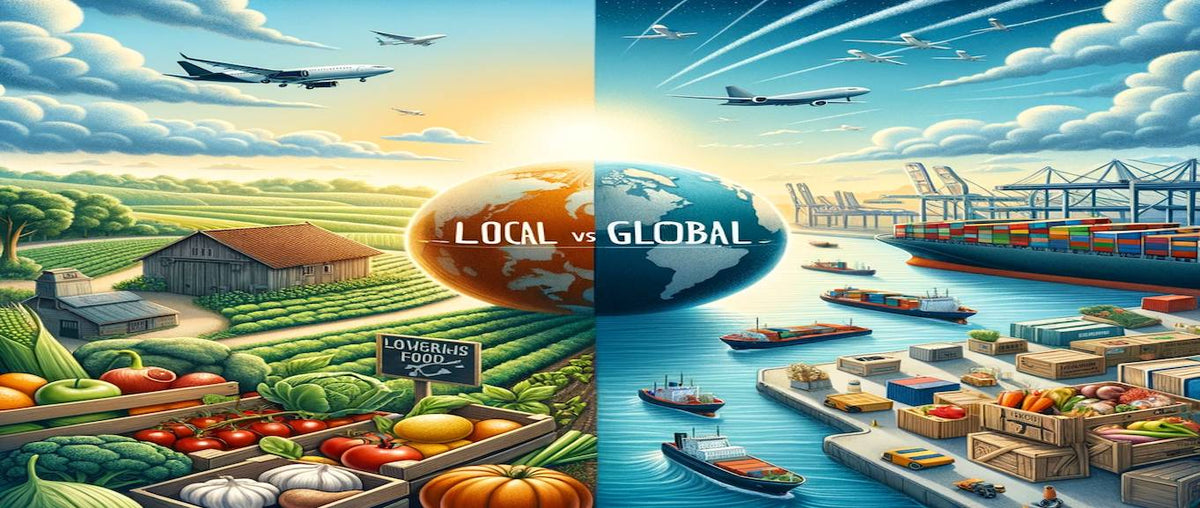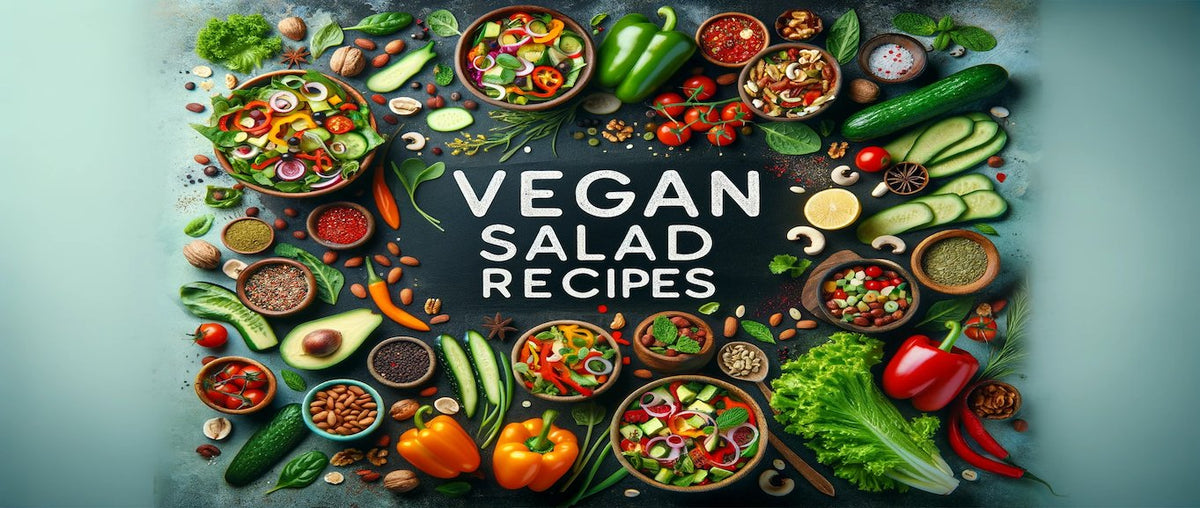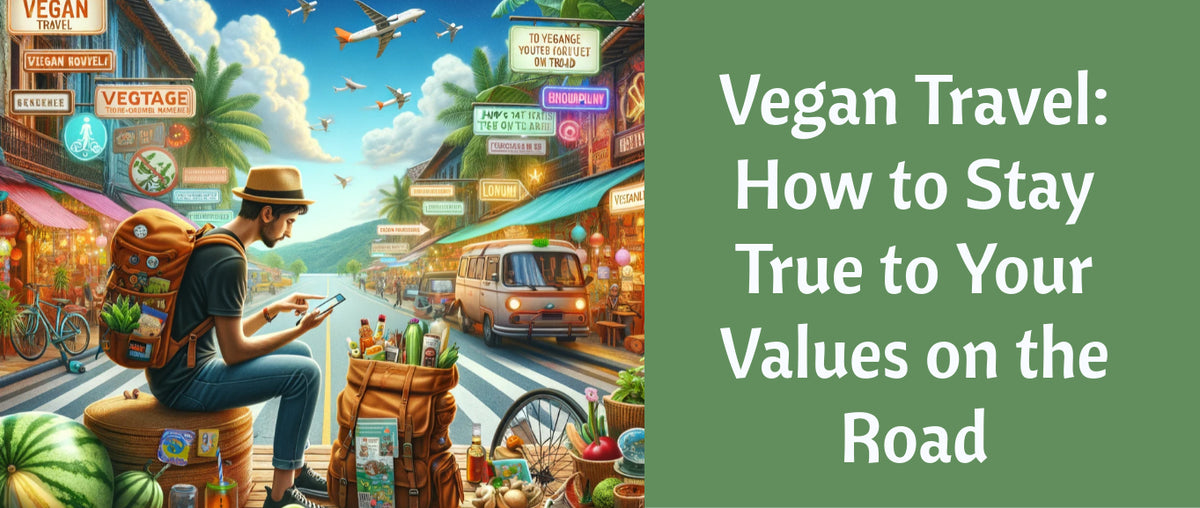Local vs. Global: The Vegan Food Miles Debate
In the ongoing pursuit of sustainable living, the debate between local versus global sourcing of vegan products is more pertinent than ever, particularly in the context of food miles. Food miles, a critical metric, measure the distance food travels from production to consumption. Emphasizing the environmental implications of transportation modes, which vary in carbon emissions, this discussion encapsulates the broader impact of our dietary choices on carbon footprints. Whether it's vegan cheese sourced internationally or locally produced vegan butter, this debate is central to strategies aimed at reducing ecological impacts, supporting local economies, and optimizing nutritional benefits in a vegan diet. As such, consumers face complex decisions in balancing the environmental benefits of local sourcing against the diversity and availability offered by global vegan food chains.
Understanding Food Miles
In the quest for a sustainable lifestyle, the debate between local vs. global sourcing of Vegan products is more relevant than ever. At the heart of this discussion lies the concept of food miles, a crucial metric that measures the distance food travels from where it's produced to where it's consumed. The shorter the journey, the lower the carbon footprint, making food miles a key factor in assessing the environmental impact of our dietary choices.
How Are Food Miles Calculated?
Calculating food miles involves considering not just the direct distance but also the mode of transportation, which varies in carbon emission levels. For instance, air freight significantly increases a product's carbon footprint compared to sea freight or land transport. This calculation becomes complex as it must account for the entire supply chain, from farm to table, including the journey to processing and packaging facilities.
The Impact of Food Transportation on Carbon Emissions
Transportation is a major contributor to greenhouse gas emissions, with the food sector being a significant part. The global journey that many plant based foods undertake before reaching our plates can have a considerable environmental cost. For example, Vegan Cheese made with Cashew Butter might source its nuts from afar, thus raising questions about the sustainability of such vegan food products despite their cholesterol free and health benefits.
The Case for Local Vegan Food
Local sourcing of Vegan products champions the reduction of food miles, aiming to decrease the carbon emissions associated with transportation. This approach not only benefits the planet but also supports local economies and fosters community connections.

Environmental Benefits
By choosing locally sourced plant based products, such as Fat Free Butter and vegan mayo, consumers can significantly reduce their dietary carbon footprint. Local farming practices often prioritize sustainable methods, further enhancing the environmental benefits of plant based cheese and other Vegan Shop offerings.
Supporting Local Economies and Communities
Purchasing vegan butter , Vegan Cheese, and other plant based foods from local producers bolsters the local economy. It ensures that your spending contributes directly to the livelihoods of local farmers and artisans, creating a more resilient and sustainable community.
Seasonality and Nutrition
Local Vegan Products in india are usually harvested at their peak ripeness, ensuring they are packed with maximum flavor and nutritional value. This contrasts with globally sourced foods, which are often harvested early and ripened artificially during transportation.
In conclusion, the choice between local and global sourcing of vegan products is not black and white. Both have their merits and challenges in the pursuit of sustainability. By understanding the complexities of food miles and their impact, consumers can make more informed choices that align with their values of environmental stewardship, health, and community support. Choosing a mix of local and global plant-based foods can be a balanced approach, allowing for both the reduction of carbon footprint and the enjoyment of a diverse, nutritious vegan diet.
Also Read
The Global Perspective
Exploring the global side of the vegan food miles debate reveals the complexity of creating a sustainable food system that balances environmental concerns with the need for diversity and accessibility in our diets.
Necessity of Global Food Chains
Global food chains play a critical role in ensuring the year-round availability of a wide variety of vegan food products, from vegan cheese to plant-based meats. These chains make it possible for consumers in colder climates to enjoy fresh produce out of season, enhancing the nutritional diversity of vegan diets. Moreover, global trade supports developing countries, providing vital income for farmers and workers involved in the production of vegan and plant-based foods.
Economic Benefits and Challenges
The global trade of plant-based products opens up economic opportunities but also poses sustainability challenges. For instance, exporting cashew butter or vegan chocolate can be economically beneficial for producing countries. However, it's essential to balance these benefits with the environmental cost of transportation and ensure fair trade practices.
Technological Advances in Reducing Carbon Footprint
Innovations in transportation and logistics are helping to mitigate the carbon footprint of global food distribution. For example, improvements in shipping efficiency, the use of renewable energy sources, and better supply chain management all contribute to reducing the environmental impact of shipping plant-based products like vegan mayo and fat-free butter across the globe.
Comparative Analysis: Local vs. Global
Environmental Impact Comparison
Local sourcing significantly reduces transportation emissions, a major plus for sustainability. However, the global sourcing of vegan products can sometimes be justified by the lower overall environmental impact of producing plant-based foods in regions where they grow more naturally and efficiently.
Economic Implications
Local economies benefit from the direct purchase of vegan and plant-based foods, but global sourcing can support developing economies and provide a broader market for their goods. The key is finding a balance that supports fair trade and sustainability.
Nutritional Value and Biodiversity
Local vegan foods often boast higher nutritional value due to reduced time from harvest to table. Conversely, global sourcing can offer a greater variety of plant-based foods, enriching diets and promoting biodiversity in food choices.

Challenges and Solutions in Reducing Food Miles
The journey towards a more sustainable food system is fraught with challenges, from the logistical difficulties of local farming to the carbon footprint of global transportation. Yet, innovative solutions are emerging to address these issues, emphasizing the importance of a nuanced approach to vegan food products.
Overcoming Logistical Challenges
- Local Farming: Encouraging community-supported agriculture (CSA) and urban farming can help overcome distribution challenges associated with local sourcing.
- Global Transportation: Investing in more efficient and cleaner transportation methods reduces the environmental impact of shipping plant-based foods.
Innovative Distribution Models
- Direct-to-Consumer Platforms: Online marketplaces for local vegan products can bridge the gap between farmers and consumers, reducing the need for long-haul transportation.
- Collaborative Networks: Collaboration between local and global producers can create a more efficient supply chain, minimizing waste and emissions.
Consumer Impact: Making Informed Choices
As consumers become more aware of the environmental impact of their dietary choices, they seek ways to minimize their carbon footprint while enjoying diverse and nutritious diets.
Informed Choices Through Labeling
- Transparency: Clear labeling about the origin and transportation method of vegan food products like vegan cheese, plant-based cheese, and vegan butter can empower consumers to make environmentally friendly choices.
- Certifications: Certifications and eco-labels can guide consumers towards products that align with their values of sustainability and ethical production.
The Role of Technology
- Apps and Websites: Digital tools can help consumers track the food miles associated with their purchases, offering insights into the sustainability of their food choices.
Policy and Advocacy: Shaping a Sustainable Future
- Supporting Sustainable Practices
- Incentives for Local Production: Policies that provide financial and technical support to local farmers can encourage the production of vegan and plant based foods.
- Regulations on Food Transportation: Implementing stricter regulations on the environmental impact of food transportation can incentivize more sustainable practices across the supply chain.
- Advocacy for Change
- Consumer Advocacy: By voicing their preferences for sustainable vegan products, consumers can drive demand for responsibly sourced foods.
- Collaboration for Policy Change: Collaborative efforts between NGOs, businesses, and governments can lead to more effective policies that support a sustainable vegan food system.
Craving a delicious vegan meal? Look no further! We've got a guide to the best vegan restaurants in India, ready to help you discover amazing plant-based eats in your city.










